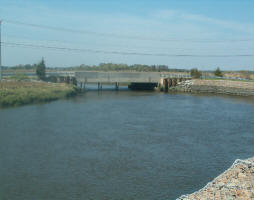 Driest English Spring in a Century
Driest English Spring in a Century
With fields left parched and rivers at record lows, government officials and experts are meeting to discuss the drought across East Anglia and parts of East Midlands, UK. England suffered its driest spring in a century last month, leaving fields parched and many rivers at record lows according to the Centre for Ecology and Hydrology (CEH).
By contrast, Scotland had its wettest spring on record for the three-month period of March, April and May, showing the wide regional variation. Much of the south-east of England has also escaped drought. For England and Wales as a whole in May, stocks were within 4% of the early June average. In areas such as London, stocks are also estimated within 10% of capacity, but in the south-west, Wales and the Midlands, reservoir stocks are 10–20% below where they should be at this time of year.
Terry Marsh, senior hydrologist at the CEH, said: “Late May soils were the driest on record across large parts of eastern and central England, causing substantial agricultural stress [and] impacting on crop yields. Currently, the most evident hydrological impact of the drought is on river flows across much of southern Britain – flows in responsive rivers were close to, or below, previous late-May minima over wide areas.”
The drought conditions will continue even if rainfall returns in the next two months, because the soils are so dry it will take longer to recover than usual. Marsh explained: “The very moderate infiltration since the winter has left groundwater levels below to well below average across most major aquifers. Above-average summer rainfall would ameliorate the drought’s impact, but with soils still exceptionally dry in much of southern Britain drought stress will continue with an expected substantial delay in seasonal recovery in runoff and recharge rates and, correspondingly, notably low autumn flows.”
The Department for Environment, Food and Rural Affairs (Defra) confirmed on Friday that Anglia was suffering a severe drought and is expected to confirm soon drought conditions in parts of the south-west of England, the Midlands and Wales.
Farmers have been worst hit, but other companies such as food processors,energy companies and some manufacturers that rely heavily on abstracting water from rivers or underground sources are also expected to experience problems. The amount of water they are allowed to abstract is to be cut in the worst-affected areas. The Environment Agency said it was difficult to predict accurately at this stage exactly which businesses would be hit.
National Farmers Union president Peter Kendall said “Let’s make sure we make food production a priority. That we talk to farmers in advance, we don’t just turn the taps right off. That we allow farmers to eke out supplies. It would be crazy, with such a big investment in the value of crops if you say ‘that’s it, no water from now on’. We’d much rather say ‘actually it’s getting low – you can have 30%, 40% of your water’.”
Water companies are however hopeful that consumers may get off lightly. Caroline Spelman, secretary of state for the environment, said: “Water companies are confident that supplies are high enough so that widespread restrictions to the public are unlikely. We’re doing all we can to reduce the impact on agriculture and wildlife, but everyone can play their part. Households know how to use less water and everyone can do their bit to use water more wisely, not only through the summer but throughout the year.”
The Environment Agency is also undertaking emergency measures in some places, such as moving fish from drying up rivers to safer habitats and pumping oxygen into depleted rivers to save aquatic life.
| Contact information | n/a |
|---|---|
| News type | Inbrief |
| File link |
http://www.waterlink-international.com/news/id1938-Driest_English_Spring_in_a_Century.html |
| Source of information | Water Link International |
| Keyword(s) | Climatic change, drought, risk |
| Subject(s) | AGRICULTURE , DRINKING WATER , DRINKING WATER AND SANITATION : COMMON PROCESSES OF PURIFICATION AND TREATMENT , RISKS AND CLIMATOLOGY |
| Geographical coverage | United Kingdom, |
| News date | 14/06/2011 |
| Working language(s) | ENGLISH |
 you are not logged in
you are not logged in





